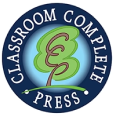National Novel Writing Month (NaNoWriMo) is a yearly event and non-profit organization that helps writers complete their creative goals with tools, structure and an encouraging community. In the past, we’ve challenged educators to encourage their students to complete a novel in 30 days by writing a chapter a day. This year, we want to share NaNoWriMo’s Young Writers Program to help facilitate this goal. The Young Writers Program offers youth-friendly writing spaces, progress tracking tools, and workbooks. Educators have access to Common-Core-aligned curricula, online classroom management tools, and motivational classroom materials in order to support their students’ skill development.
With the Young Writers Program, students can sign up and set word-count goals for the month as they draft their novel directly on the site. This helps keep students motivated as they release their creativity all month-long. Find out how it works here.
For educators, they can track their students’ progress and keep them motivated with resources from the toolkit. Create a virtual classroom for distance learning or additional homework. Find out how it works here.
And to help you get started, here are our top tips to start writing:
1. Brainstorm. Come up with ideas by writing down all of your thoughts about a subject in a set period of time.
2. General to Specific. Think of a general topic you're interested in, like science. Narrow this down further into a specific subject, like space science, planets, mars. Write a story about a trip to mars.
3. Pick a genre. There are many types of stories out there. Decide which one you'd like to write: adventure, historical, mystery, realistic, science fiction, fantasy, animal.
4. Map it out. Make a map of your story, like a timeline. Include characters and key plot points that you want to touch on at specific times. Follow this map as you write your story.
5. Free writing. Just start writing. Think stream of consciousness. Write what comes in your head using complete sentences. It's okay if it doesn't make sense or doesn't flow together. Don't think too much as you put pen to paper.
Still need help? Get started with these helpful writing prompts:
- Write about your best friend.
- Write about your best Christmas ever.
- Write about the most important event that happened to you.
- Write about your summer vacation.
- Write about the worst storm you've experienced.
- Write about your most cherished memory.
- Write about a vivid dream you remember having.
- Write about what you think the future might be like.
- Write about the time you went to a new place for the first time.
- Write about the time you learned something important.
For more resources in writing, check out our ready-made writing skills lesson plans. And don’t forget to visit our Free Content section for hundreds of free language arts worksheets.

